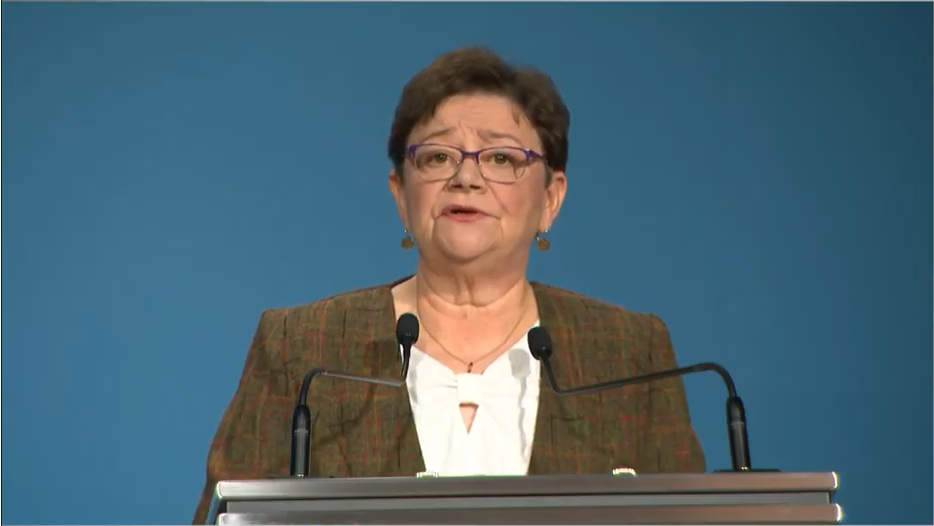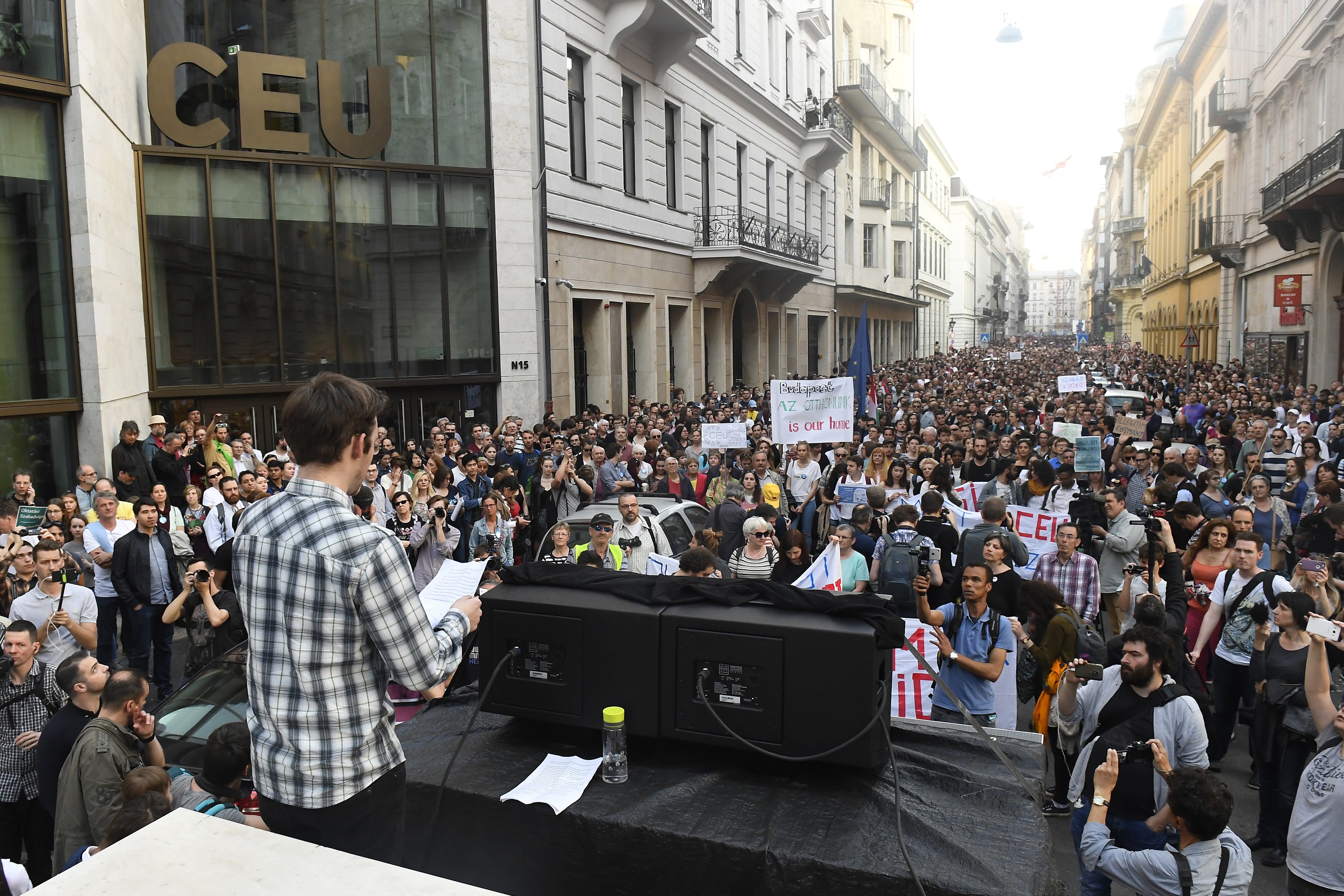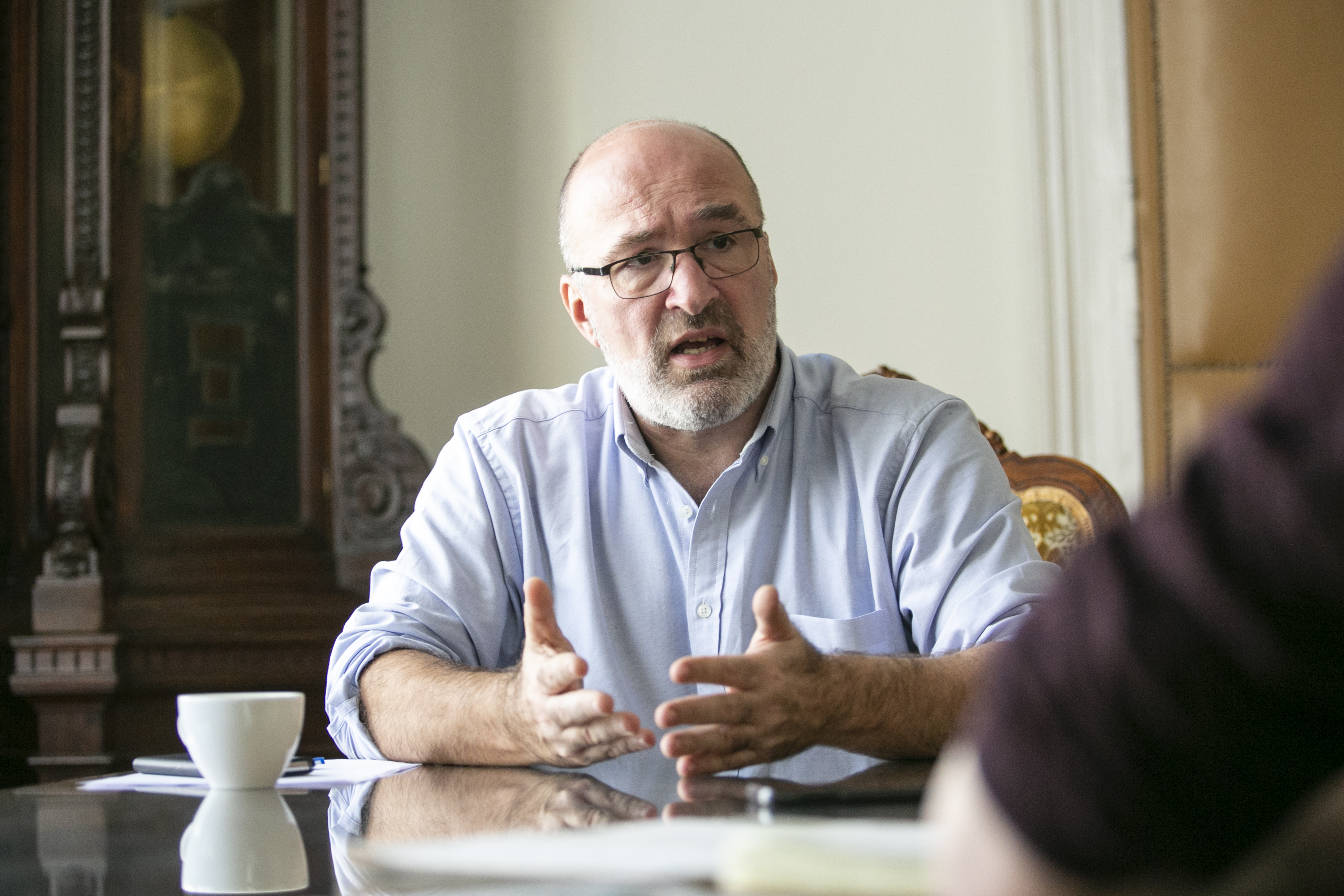39-year-old teacher dies of coronavirus, but does not appear on government's list of deceased
- Stay updated on the latest news from Hungary by signing up for the free InsightHungary newsletter:
A 39-year-old teacher at a primary and secondary school died on Saturday from complications arising from a coronavirus infection, but has still not appeared on the government's official list of deceased persons.
The victim first experienced symptoms on September 17, and several days later was placed in a hospital where he tested positive for the coronavirus. He was put in intensive care in the hospital's coronavirus ward, and was later placed on a ventilator. The man died on October 3, 12 days after arriving in hospital.
The patient's final medical report gives his cause of death as respiratory and multiorgan failure induced by SARS-2 COVID, the disease caused by the coronavirus. However, as of Thursday, the death has not been registered in the government's daily official tally of the deceased.
Chief Medical Officer Cecilia Müller said at a daily press conference on Thursday that the Emergency Task Force was aware of the teacher's death, but that identifying the man's cause of death was still "in process".
"We really try to give only valid, adequate information to you all," Müller said, adding that the Emergency Task Force would request the patient's final medical report and death certificate in order to determine his true cause of death and any underlying conditions. If the death can be attributed to the coronavirus, she said, "it will obviously be placed on the list among the other deaths."
The National Teachers' Trade Union issued a statement on Thursday expressing its sympathy with the teacher's family, and demanded that the government take immediate action to ensure the health and safety of educators.
"It's clearer now than ever that the government has left public education institutions and their workers on their own, sacrificing them because it wants to push the economy," the union wrote. "Still, in many cases, it has not created the conditions for working safely."
The number of coronavirus deaths in Hungary broke springtime records three days in a row this week, peaking at 24 on Wednesday and bringing the total number of deaths to 898. The percentage of positive tests moved between 10 and 14 percent for most of the week, dropping to 8 percent on Thursday, still well above the 5 percent recommended by the World Health Organization. The high rates are due to inadequate testing.
EU Court of Justice: Lex CEU violated European law
The European Court of Justice ruled on Tuesday that amendments to Hungary's law on higher education made in 2017, which forced the Budapest-based Central European University (CEU) to move most of its operations out of Hungary, are incompatible with EU law.
The decision came as the U.S.-chartered university has already spent some €200 million moving most of its operations to Vienna despite widespread public outcry and a drawn-out conflict with the Hungarian government over its right to remain in the country. The university's founder, Hungarian-born American billionaire George Soros, said that while the decision requires that the legislation known as lex-CEU be abolished, “We cannot return to Hungary, because its prevailing laws don’t meet the requirements of academic freedom.”
CEU rector Michael Ignatieff said at a press conference in Vienna on Tuesday that while the university considers the Austrian capital its new home, its Budapest campus would be used to host programs including the CEU Democracy Institute.
In its ruling, the EU court declared that conditions imposed on foreign higher education institutions by the 2017 legislation did not live up to Hungary's commitments to agreements of the World Trade Organization (WTO), as well as European agreements including the Charter of Fundamental Rights of the European Union. The law violated rules on academic freedom, freedom of establishment and the free movement of services, the court wrote.
In response to the ruling, Hungary's governing Fidesz party issued a statement declaring that the "Soros network and the pro-immigration Hungarian left wing are using every forum and means against our homeland". Justice Minister Judit Varga reacted by saying the decision was "unacceptable", and that laws cannot be passed that give the "Soros university" advantages over Hungarian institutions.
The government will carry out the European Court's ruling "in accordance with the interests of the Hungarian people," Varga said.
The timing of the court's decision drew criticism from some observers who argued the European Union had acted too late to save CEU from expulsion, and that it should have issued an injunction against the legislation while the court considered the case. Hungarian MEP Katalin Cseh told Euronews that the court's decision was "too little, too late", adding, "Justice delayed is justice denied."
SZFE students prevent newly-appointed chancellor from entering blockaded campus
Students of the University of Theatre and Film Arts (SzFE) in Budapest blocked the university's new chancellor, military officer Col. Gábor Szarka, from entering the campus Thursday morning after the chancellor issued an ultimatum for ending the students' weeks-long blockade.
Szarka, a mechanized infantry officer and former Chief of Staff to the Minister of Defense, was appointed chancellor in early October by the university's recently installed board of directors, which students and professors have rejected and consider a government attack on the university's autonomy.
On Monday, Szarka offered pay raises to striking professors and impunity for students who have occupied the campus since late August in exchange for ending the strike and blockade by Wednesday at midnight. His offer also stated that failure to comply with the deadline could result in the suspension of the academic semester.
Students rejected the offer, saying they considered it an ultimatum by a governing body they consider illegitimate, and vowed to maintain their blockade and not allow any members of the university's new leadership to enter the campus until their demands for autonomy guarantees are met.
In an interview with Magyar Narancs, student representatives said that "we will probably have to be ready for more and more people trying to enter the building" following the expiration of the chancellor's ultimatum. They maintained their demand to negotiate with the Minister of Human Resources, adding that the university's government-appointed board of directors was selected "anti-democratically and illegitimately."
The chancellor has said he must enter the campus in order to pay salaries for some 150 university workers, but the university's payroll accountant told Telex.hu that Szarka's statement was "absurd", and that he could send wages from outside the campus.
In an interview with state radio on Tuesday, Szarka said that "violence and threats of violence" will not be used as a means to end the blockade, but that "protesters are terrorizing people inside [the campus], and debates are escalating to shouting, there is no unity at all." The colonel also wondered whether the student blockade had become "a dictatorship."
Pro-government newspaper accuses district mayor of planning corrupt contract with deceased father
"András Pikó would renovate district rental flats using his father's company."
That headline appeared in pro-government newspaper Magyar Nemzet on Tuesday in reference to a statement made by Budapest District VIII mayor András Pikó at a district council debate on anti-corruption strategy. At the meeting, the mayor accused Fidesz council members of a "culture of corruption" wherein oligarchs and family members of politicians are enriched through government contracts.
To illustrate his argument, Pikó said, "Let's say my father is a construction entrepreneur, he's the best, he could come here and renovate these [district properties]. You think there would be no problem with that, just like you think there's no problem with Viktor Orbán's father hauling rock from his own mines to build a highway." (An investigation has revealed that a company owned by Orbán's father provided stone for the expensive state-funded M4 highway construction project - ed.)
Magyar Nemzet later published Pikó's rhetorical comparison as a statement of fact, writing that the mayor intended to award a government contract to his father's construction company. In response, Pikó wrote on his Facebook page that awarding such a contract would be difficult since his father was a gardener and had been dead for several years.
"The other problem is that the culture of corruption that characterizes the ruling party is simply unthinkable in our political community," Pikó wrote.
Following Pikó's response, the newspaper changed the headline but did not issue a correction, writing instead, "András Pikó's words misled the press and everyone who observed the meeting. We published Pikó's words directly. If this hurt anyone, we're sorry."




